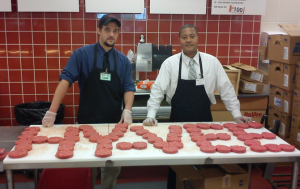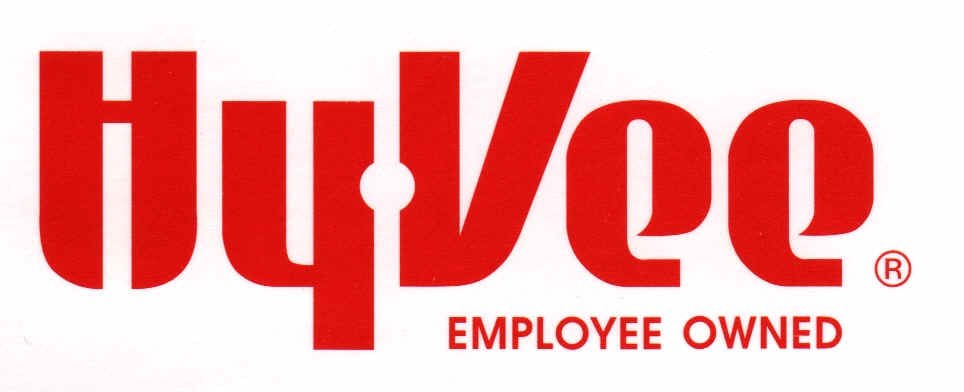I never liked Hy-Vee in Manhattan, Kansas.
They were sorta uppity and didn’t seem to know shit about food safety.
 An editorial in The Des Moines Register echoes those sentiments:
An editorial in The Des Moines Register echoes those sentiments:
More than 50 people were sickened by cooked taco meat that was served to the staff at Des Moines’ Roosevelt High School last month.
The cooked meat was purchased from a grocery store shortly before it was served at the school as part of a staff luncheon. Subsequent testing detected a temperature-sensitive bacteria in the meat. The Iowa Department of Inspections and Appeals said the food was likely tainted during preparation at the store since the bacteria wouldn’t have had enough time to grow between the time the meat was purchased and the time it was served.
The official public report from the Polk County Department of Public Health said that while a “specific point” in the preparation and handling process couldn’t be identified as the culprit, food-safety and food-handling guidelines were reviewed “with those involved.” The state inspections agency said the store had given assurances the staff was being retrained.
The trouble is, the county and the state chose not to disclose the name of that store. Fortunately, community members stepped forward and identified the business as the Hy-Vee store in Windsor Heights. Had they not done so, the identity of the food supplier might still be unknown.
A Hy-Vee spokeswoman acknowledged the store provided the food, but denied that it was responsible for the food poisoning. She then appeared to cast blame on the store’s own customers, saying, “We can’t control how food is handled after it leaves our stores.”
That statement contrasts sharply with the state’s calming reassurance that the Hy-Vee staff is being retrained, and it only serves to underscore — perhaps unintentionally — the importance of disclosing the names of food suppliers in cases like this.
But public disclosure is traditionally the road less traveled in Iowa, a state where regulations are written largely to protect business and industry — even at the expense of the public welfare.
Our state law says public health reports should be written in a manner that doesn’t identify a business that may be at fault. It goes on to say that “information disclosing the identity of the business may be released to the public when the state epidemiologist or the director of public health determines such a release of information (is) necessary for the protection of the health of the public.”
In the Roosevelt High School case, state health officials say, no public health threat was identified, as only those people who attended the school luncheon were sickened. The logic in that position is hard to fathom, especially when one considers the volume of food a store such as this is capable of dispensing on any given day.
When public health officials identify a supplier of food that is later found to have sickened 50 people, that supplier should be publicly identified. People in the community deserve to know who may have been responsible — not so they can organize a torch-bearing mob, but so they can make fully informed decisions as consumers.


 food catered by Hy-Vee here in Manhattan, KS. To my surprise, and delight, I observed the delivery chef test each one of the lasagna platters with a digital thermometer, and write down each temperature on a temp. sheet. Our club’s president then signed the sheet and we went about our business. Today, I called Hy-Vee to ask a few questions. Here’s the scoop.
food catered by Hy-Vee here in Manhattan, KS. To my surprise, and delight, I observed the delivery chef test each one of the lasagna platters with a digital thermometer, and write down each temperature on a temp. sheet. Our club’s president then signed the sheet and we went about our business. Today, I called Hy-Vee to ask a few questions. Here’s the scoop..jpg) batch. They fill in the temp. sheet, have it signed by the customer and leave printed instructions to discard any leftover food within 4 hours due to food safety risks past that timeframe. Now that I don’t have to worry about food poisoning from these events, I can focus on not contaminating my food with formalin.
batch. They fill in the temp. sheet, have it signed by the customer and leave printed instructions to discard any leftover food within 4 hours due to food safety risks past that timeframe. Now that I don’t have to worry about food poisoning from these events, I can focus on not contaminating my food with formalin.